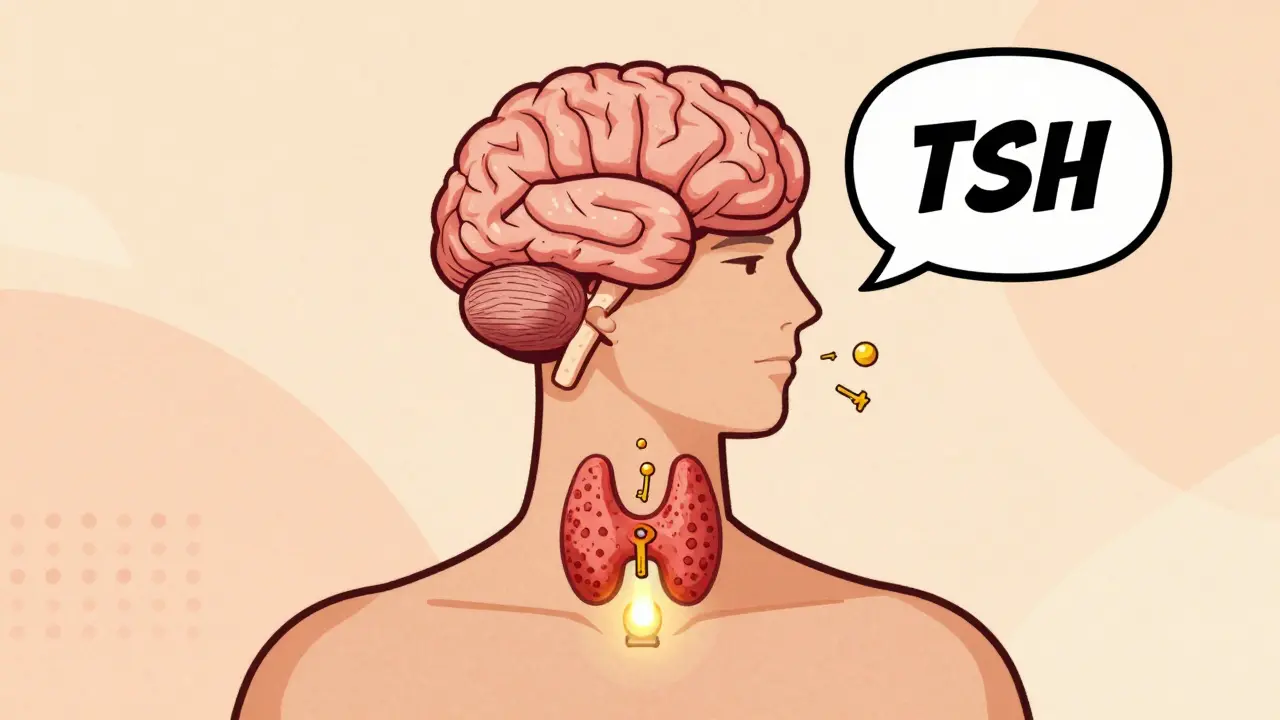Hypothyroidism: What It Is, How to Spot It, and Easy Ways to Manage
If your thyroid is running slow, you might feel tired, cold, or gain weight without trying. That’s hypothyroidism – a condition where the gland doesn’t make enough hormones. The good news? Most people get back to normal with a simple daily pill and a few lifestyle tweaks.
Common Signs You Shouldn't Ignore
Think you’re just stressed? Look for these clues: persistent fatigue, dry skin, hair thinning, constipation, and a slower heart beat. Women often notice heavier periods or trouble getting pregnant. If any of these show up together, it’s worth asking your doctor to check your thyroid.
How Doctors Confirm the Diagnosis
The test is straightforward – a blood draw for TSH (thyroid‑stimulating hormone) and sometimes free T4. High TSH means the pituitary is shouting for more hormone, which tells you the thyroid is under‑active. Most labs have clear reference ranges, so you’ll get an easy‑to‑read result.
Once diagnosed, treatment usually starts with levothyroxine, a synthetic version of the natural hormone. The dose is personalized based on age, weight, and other health issues. Doctors typically re‑check TSH after 6–8 weeks to fine‑tune the amount.
Taking the pill correctly matters. Swallow it on an empty stomach with water, wait at least 30 minutes before breakfast or coffee. Calcium supplements, iron, and certain foods can mess with absorption, so keep them separate from your dose.
Beyond meds, a few daily habits help the thyroid work smoother. Eat enough iodine‑rich foods like fish, dairy, and seaweed, but avoid overdoing salty processed snacks. Selenium (found in Brazil nuts) and zinc (in beans and meat) also support hormone production.
Exercise isn’t just for weight – it boosts metabolism and lifts mood, both of which can suffer with low thyroid. Aim for a mix of gentle cardio, like walking, plus strength work to keep muscles strong.
If you’re feeling off even after medication, talk to your doctor about possible adjustments. Sometimes other conditions (like anemia or adrenal issues) hide behind the same symptoms. A collaborative approach ensures you stay on track and feel better fast.

TSH and T4: Understanding Thyroid Function Tests and Dosing Protocols
Learn how TSH and free T4 tests diagnose thyroid disorders, what normal ranges really mean, and how dosing works for hypothyroidism and hyperthyroidism. Understand why some patients are misdiagnosed-and how to get it right.
Read More
10 Alternatives to Synthroid: What Works for Thyroid Health?
If Synthroid isn’t cutting it for your thyroid needs, you’re not out of options. This article breaks down 10 alternatives, showing what makes each one different and who might benefit the most. You’ll get the real pros and cons—not just the hype—so you can have a better chat with your doctor. Whether you want something more natural or need a different dose option, we’ve got all the details. No jargon, just straightforward advice.
Read More